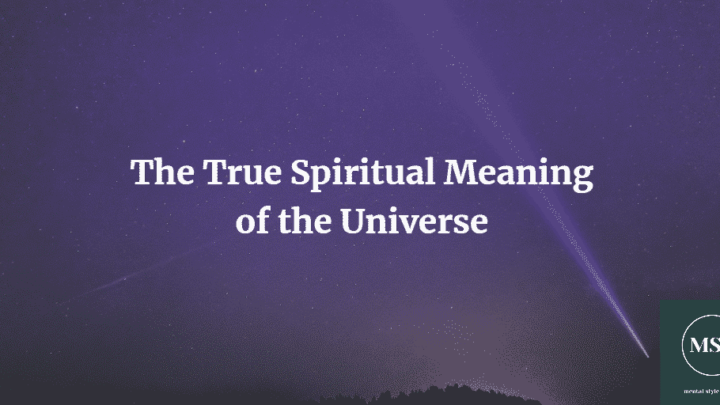The Bahá’í teachings offer profound insights into the nature of existence, particularly through the lens of hospitality and inhospitability as they relate to the universe. This discourse presents a unique opportunity to explore the dichotomy of these two concepts, as well as the underlying spiritual significance they embody. Central to the Bahá’í Faith is the assertion that the universe is fundamentally a hospitable entity. However, a closer examination reveals that the manifestations of inhospitability are often imposed by human actions rather than intrinsic to the universe itself.
At the very heart of Bahá’í philosophy lies the belief in the interconnectedness of all beings. This principle engenders a perspective that views the universe not merely as a vast expanse of space and time, but as a nurturing ground for the spiritual and moral development of humanity. From this viewpoint, the universe is hospitable, providing the conditions necessary for growth, learning, and communion among souls. Such perspectives align with the teachings of Bahá’u’lláh, who emphasized that humanity’s ultimate purpose is to cultivate and express love, compassion, and unity.
Despite the inherently hospitable nature of the universe, societal constructs and personal behaviors often betray a significantly different narrative. Instances of conflict, discrimination, and emotional disconnection can create environments that appear inhospitable. These observable realities prompt inquiries into the deeper reasons behind human fascination with both the loving and the hostile elements of existence.
The first consideration in this examination is the concept of free will. Bahá’í teachings affirm that free will is a distinguishing characteristic of human nature. This gift allows individuals to choose paths that either align with the principles of compassion and hospitality or veer toward egoism and inhospitability. It becomes evident that the pervasive conflicts seen throughout societies result from the expressions of free will where individuals or groups prioritize self-interest above the collective good. This dichotomy becomes a focal point for contemplation within the Bahá’í community—how can one navigate the inherent tensions between self and other, while simultaneously fostering an inclusive and welcoming environment?
Moreover, there exists a common observation that highlights the paradox of human behavior. Human beings are endowed with the remarkable ability to empathize and connect, yet they often choose paths that lead to segregation and estrangement. This incongruity can be partially attributed to societal conditioning, cultural narratives, and historical contexts which have, at times, fostered separation rather than solidarity. Bahá’í teachings address this phenomenon by advocating for the dismantling of prejudices and the promotion of unity. The idea is not merely to recognize our oneness but to actively engage in practices that manifest this reality within our communities.
Delving further into the spiritual dimension, one must consider the implications of inhospitability on the individual psyche and its ripple effects on society. The unwelcoming aspects of human interaction can engender spiritual corrosion—a distancing not only from others but also from oneself. In essence, periods of inhospitability can lead to disconnection from the divine attributes that bind all humans together. The challenge, therefore, is to spiritually reconcile these feelings of alienation by nurturing traits such as forgiveness, understanding, and acceptance. Bahá’í teachings invite adherents to turn towards these divine virtues, thus fostering personal and communal healing.
Furthermore, the concept of hospitable versus inhospitable extends into our relationship with the natural world. The environment, as part of the universe, reflects a hospitable design meant to sustain life. Yet, the exploitation of natural resources, pollution, and climate change illustrate how human actions can disrupt this harmony, creating inhospitable conditions not only for humanity but for all living creatures. Bahá’í teachings underscore the responsibility of individuals to act as stewards of the Earth, emphasizing that caring for the environment is an extension of our duty to be hospitable. This stewardship is not merely an act of conservation; it is an acknowledgment of the sacredness of all creation and our interdependence with it.
Through the exploration of these themes, the question emerges: How can humanity represent the hospitable characteristics of the universe in daily life? Engaging in acts of service, practicing kindness, and fostering inclusivity are essential steps towards manifesting an earthly reflection of divine hospitality. Setting aside personal grievances and embracing a collective ethos creates spaces of belonging that encourage participation and collective advancement. Thus, by actively cultivating a hospitable attitude, individuals can counteract inhospitable tendencies that may arise from misunderstandings or fear.
Ultimately, the question of hospitableness in the universe prompts a rhetorical contemplation: Is the universe itself inhospitable, or is it humanity that needs to embrace its inherent hospitality? The answer anchors deeply in the principles of unity and love that the Bahá’í Faith espouses. The cosmos can indeed appear unforgiving at times; however, the enduring message remains that it is comprised of opportunities for elevation, growth, and connection.
In conclusion, the Bahá’í teachings illuminate a pathway toward understanding both the hospitable and inhospitable aspects of our universe. They inspire a commitment to embrace hospitality as a guiding principle in interactions with others, oneself, and the natural world. Such an approach will not only enrich personal lives but will ultimately contribute to a vibrant, cohesive society that reflects the primordial essence of love and interconnectedness that defines the universe.
